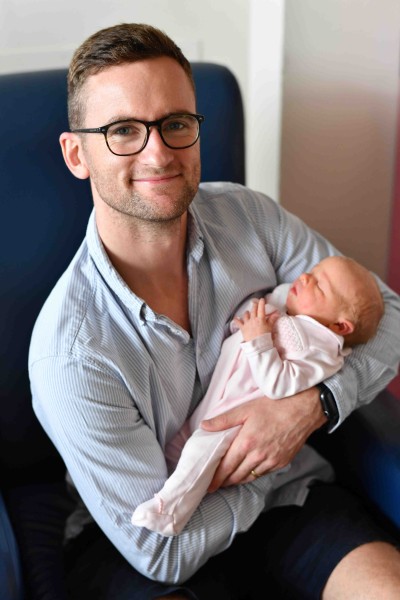What to expect soon after birth

If you notice anything that worries you, however small, ask your midwife. Your baby will be examined by a midwife, paediatrician or neonatal nurse practitioner to make sure everything is all right.
Your baby’s general development
During your child’s development reviews, your health visitor will ask you how your child is doing and about any concerns you may have. If your baby was born prematurely, their developmental age will be calculated from your original due date, not from the actual date they were born.
Your baby will usually be weighed regularly between the ages of one month and 13 months and at the time of routine vaccinations. If there’s any concern about your baby’s weight, they may be weighed more often. In general, your baby should be weighed no more than once a month when they’re up to six months old, once every two months from six to 12 months, and once every three months when they’re over the age of one.
Child health clinics
Child health clinics are usually based in your local health centre or children centre. They are run on a weekly basis by your health visitor and provide information and advice on all aspects of health and baby care. Your health visitor will give you all the information about where and when these clinics are held.
Child health records
The Personal Child Health Record (PCHR) or ‘Red Book’ will be given to you, ideally within 3 days of the birth and is the main record of your child’s health, growth and development and needs to be kept in a safe place. This ensures that you have a copy of your child’s progress for your own information and for health professionals when and where you may need it. It also records your child’s height and weight, immunisations, childhood illness and accidents.
View further information on the following:
- Birth mark and spots
- Newborn screening
- Breasts and genitals
- Bumps and bruises
- Colic
- Cord care
- Crying and caring for your baby at night
- Eyes
- Early development
- Fontanelle
- Jaundice
- Mouth
- Nappy rash
- Skin
- Stools
- Thrush
- Weight
- Early immunisations
- Tongue tie: If we suspect your baby might have a tongue tie, a clinical specialist will do a full assessment of the tongue and your baby’s feeding. If necessary, an appointment at our tongue tie clinic will be made for you.